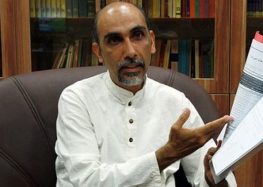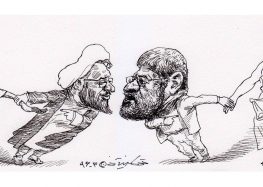Ali Motahari, Iranian Conservative MP: Iran’s Judiciary Lacks Independence
Over the past few months, several lawyers who represent political prisoners have expressed concern over the Iranian Judiciary’s lack of impartiality, as well as the widespread influence of the Ministry of Intelligence and IRGC’s Intelligence Unit in the Judiciary’s decision-making processes. In an interview with ISNA News Agency, conservative Iranian MP, Ali Mottahari said yesterday that the Judiciary does not have sufficient independence and that “this is a sign of weakness and lack of courage in carrying out justice.”
Mottahari’s interview with ISNA was about the Judiciary’s dealing with corruption and its selective and gratuitous treatment of financial criminals. He also questioned the Judiciary’s objectivity in dealing with different political groups, saying: “In order to show its independence, the Judiciary must not only review charges made against certain political groups. They must review charges against all groups at the same time in order to gain people’s trust about the Judiciary.”
Closure of certain newspapers and arrests of those critical of the government’s economic and political policies, as well as journalists and former government authorities who have all opposed the government, have created questions about the Judiciary’s impartiality. Ever since Sadegh Larijani took office as Head of Iranian Judiciary, and with the appointment of Mohammad Bagher Zolghadr, a former IRGC Commander known for his radical views first as an advisor and then as his Deputy, it seems the infiltration of intelligence and security organizations in the Iranian Judiciary has picked up momentum. Some human rights lawyers told the International Campaign for Human Rights in Iran that in some cases Ministry of Intelligence and IRGC Intelligence Units have written letters to judges, interfering in what sentences should be issued for the suspects.






